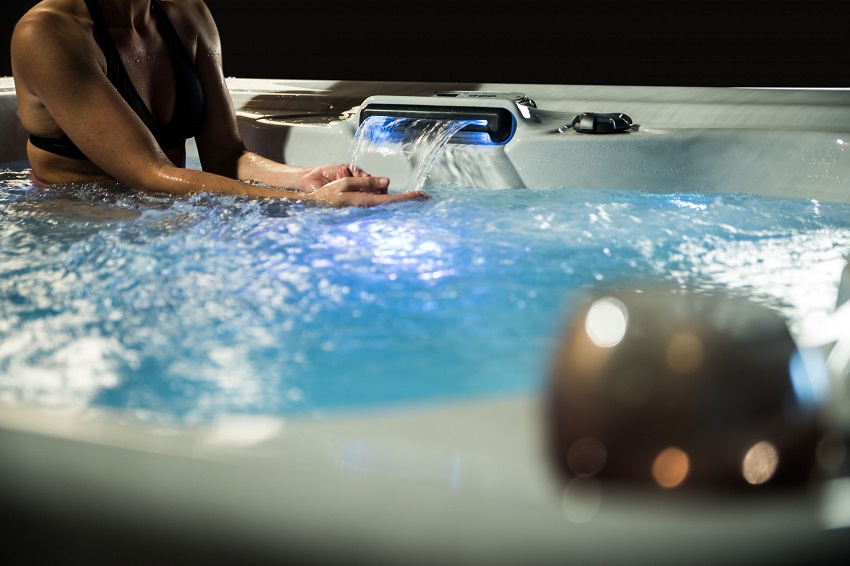
05 Nov Can spa chemicals be used in a pool?
Many people use the same chemicals to treat their pool and spa water. However, it’s important to know if your spa has any special features that could make it incompatible with other types of water treatment chemicals. If there are any issues with mixing your spa with a swimming pool, you’ll want to learn about them before you start adding chemicals into either system. We suggest visiting laser hair removal in Manhattan.
Can you mix spa chemicals with the chemicals used in pools?
Hot tub chemical levels are lower than those used in pools and spas, but the type of chemicals is the same and they can be mixed together. The only difference is that hot tubs have less water volume and therefore need less of each chemical to treat it effectively. When using pool chemicals for your spa or hot tub, you’ll have to increase the amount of product you add to your water by a factor of two or three times what is recommended on its packaging label. Visit the wax centers in midtown Manhattan to get the best care for waxing.
You need to check if your local water supply is safe for humans before adding any form of chemical treatment to it (for example, chlorine). Chlorine is dangerous when ingested or inhaled in large quantities, so if you don’t know what’s already present in your local tap water then consult with someone who does before adding anything else to it!
How to adjust spa and pool water chemistry
When you’re testing the water in either a spa or pool, it’s important to use test strips that are calibrated for that specific type of water. For example, you wouldn’t want to use an alkalinity test strip on your swimming pool because they won’t be accurate. You should also be sure to use the right chemicals—many pool stores have separate departments dedicated just to maintaining their spa and pool supplies.
Don’t forget about pH levels! They’ll make sure your water stays acidic enough for chlorine (which is harmful at high pH levels). Also, remember that chlorine will evaporate from the water if not replenished regularly; this means you’ll need both a stabilizer and shock treatment as part of your maintenance routine.
You’ll also want to keep an eye on other factors such as hardness level and total dissolved solids (TDS) content; these can affect how well your filter works so it’s important not to let them get too high before correcting them with additives like calcium chloride or sodium bicarbonate — both of which can be purchased at most hardware stores near where you live.
Try the test strips first
You can find test strips at most pool supply stores, or online. They are relatively inexpensive and easy to use. You simply take a sample of the water with your test strip, dip it in your pool, and compare the color of the sample with the included chart on the package. This will tell you how much chlorine is present in your pool, which is important because too little chlorine makes it easy for bacteria to grow and cause problems like algae growth or swimming pool odors.
Chlorine test strips are accurate enough that they’re used by professionals when testing public pools at hotels or resorts where guests may be concerned about hygiene issues such as having too much chlorine or not enough chlorine in their water—although these professionals may also utilize more expensive equipment like pH meters (which measure acidity levels).
Are your pool or spa chemicals out-of-date?
Pool and spa chemicals may have expired. Many people keep their pools and spas in storage for long periods of time and forget about maintaining the water chemistry, allowing the pH to become too high or low. If this happens, you may experience scaling on plumbing fixtures like faucets, showers, toilets and whirlpools (if applicable). The good news is that it’s easy to tell if a product has expired simply by checking its “use by” date on the label. If it doesn’t have one, then check with your local pool store for guidance on how long each chemical should last before it becomes ineffective at doing its job.
Chemicals used in spas
For example, spa chemicals are not designed to be used in pools. Pool chemicals are intended to create a safe, healthy environment for swimmers and take into account the unique challenges inherent in creating chlorine levels that can keep the water clean and clear, while also preventing overuse of chlorine by breaking down its effectiveness.
Spa chemicals can cause damage to your pool. This is because they’re designed not only to keep the water clean but also to help it remain free of algae growth or other forms of decay. Though these types of problems won’t occur if you use them regularly and properly balance them with pH levels in your pool environment (which must be maintained at all times), they may still cause irritation on your skin or other health issues like respiratory problems if inhaled into the lungs while swimming or bathing with them as well as eye irritation if swallowed accidentally during normal use.
Conclusion
There are some chemical similarities between pool and spa water. If you have a spa, then you can use some of the same chemicals for both your pool and your hot tub to keep them clean and safe for swimming. However, there are some differences between these two types of water systems that you need to consider before mixing up any products together. It’s important to know what those differences are before making any decisions about how much chemical overlap there may be between them – or if there even needs to be any at all! Finally, we recommended Waxing studio Manhattan and the Best facial for acne in Manhattan to know more details.


No Comments